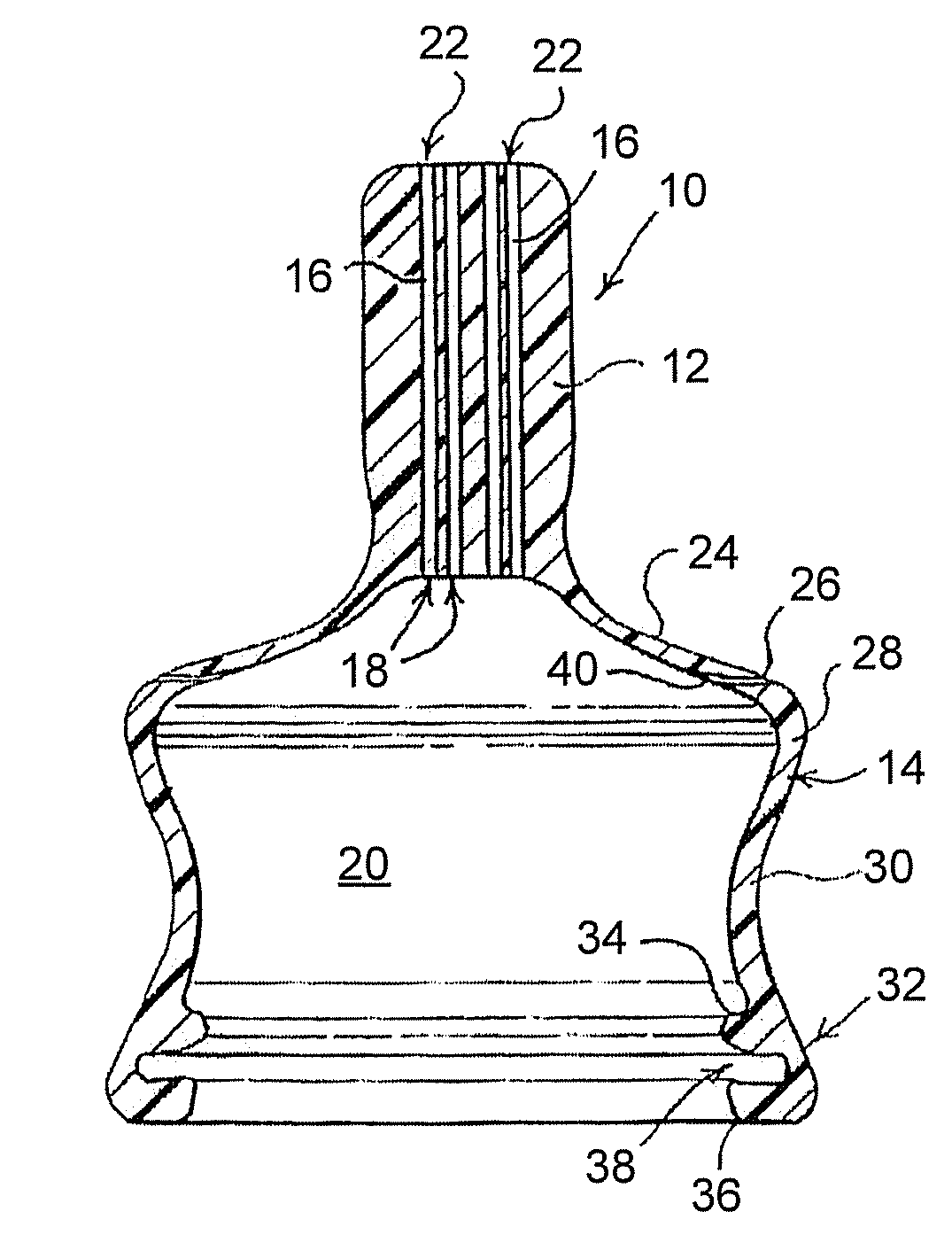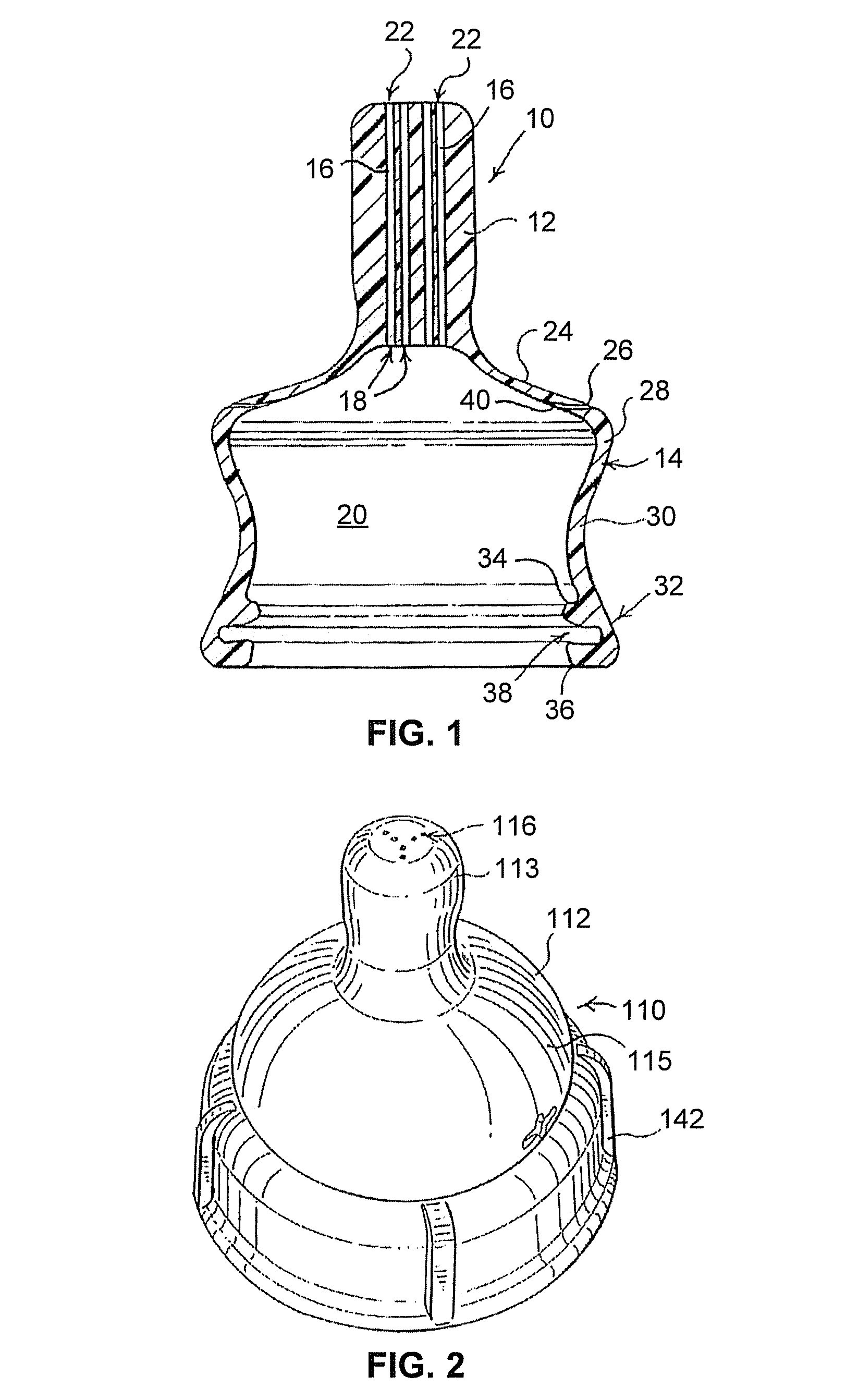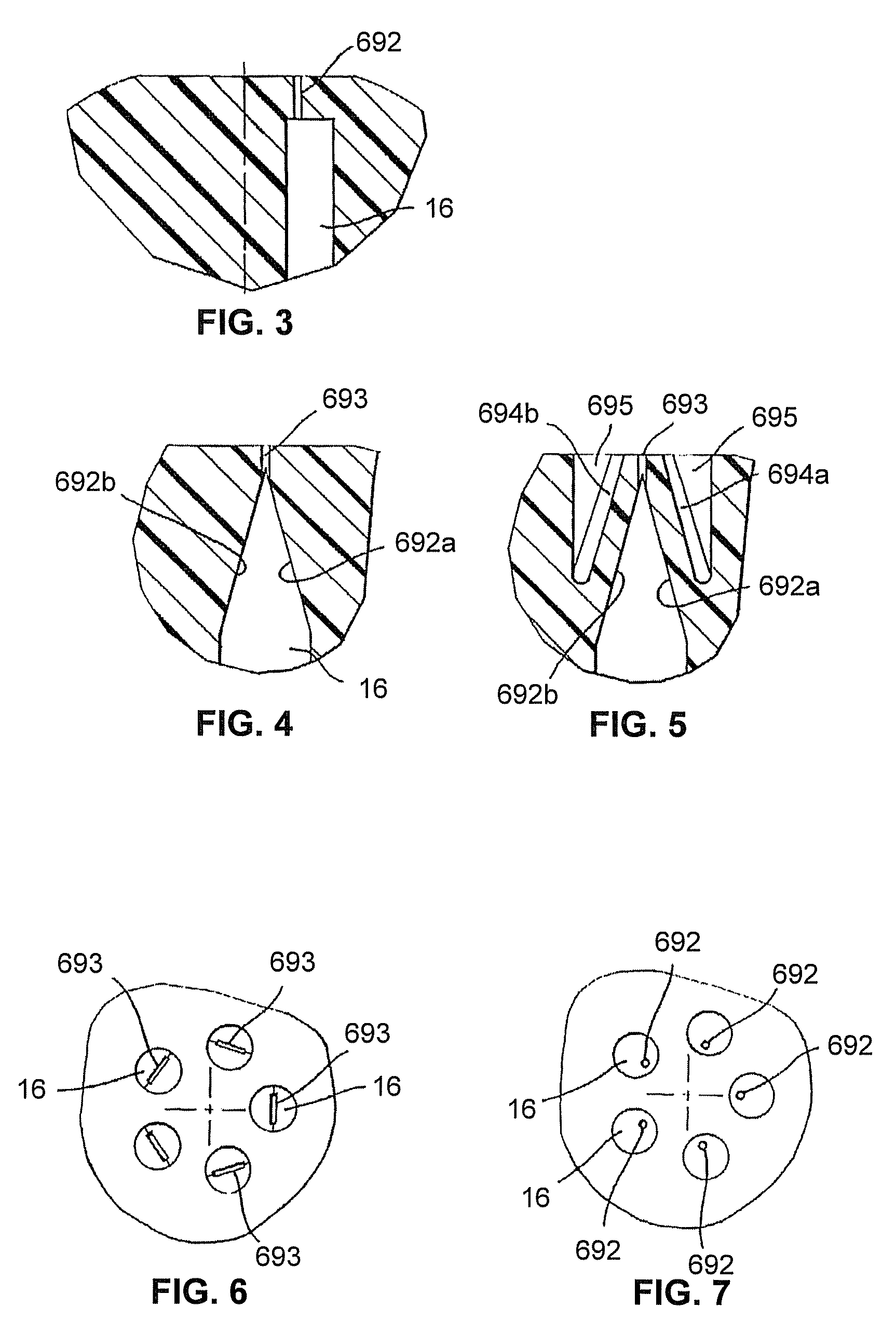Artificial feeding nipple tip with variable flow construction
a technology of variable flow and artificial nipples, which is applied in the direction of feeding bottles, teas, etc., can solve the problems of not always being able to exclusively breast-feed, not always being able to expand the existing aperture, and not always being able to open additional apertures, etc., to achieve increased negative pressure, decreased flow rate, and increased flow rate
- Summary
- Abstract
- Description
- Claims
- Application Information
AI Technical Summary
Benefits of technology
Problems solved by technology
Method used
Image
Examples
Embodiment Construction
[0039]FIG. 1 shows an embodiment of a nipple, illustrated generally at 10, for use with a container, such as a bottle or bag. The nipple 10 may be made of any suitable material, but in a preferred form is made of a silicone material, such as silicone rubber. Preferably, the nipple material may be silicone, but could alternatively be other materials, such as thermoplastic elastomers (TPE's), such as polyisoprene, and others compatible for nursing.
[0040]It will be noted that, while described in the environment of human infant feeding, the invention has broader application to animal feeding, providing fluids to non-infants, and so on.
[0041]As shown in FIG. 1, the nipple 10 is formed of two subparts including a substantially solid nipple portion 12 at a proximal end thereof for insertion into an infant's mouth and for conveying fluids therethrough from an attached bottle (not shown). Proximal and distal, being indicative terms, are chosen here with respect to the user (e.g., the infant)...
PUM
 Login to View More
Login to View More Abstract
Description
Claims
Application Information
 Login to View More
Login to View More - R&D
- Intellectual Property
- Life Sciences
- Materials
- Tech Scout
- Unparalleled Data Quality
- Higher Quality Content
- 60% Fewer Hallucinations
Browse by: Latest US Patents, China's latest patents, Technical Efficacy Thesaurus, Application Domain, Technology Topic, Popular Technical Reports.
© 2025 PatSnap. All rights reserved.Legal|Privacy policy|Modern Slavery Act Transparency Statement|Sitemap|About US| Contact US: help@patsnap.com



